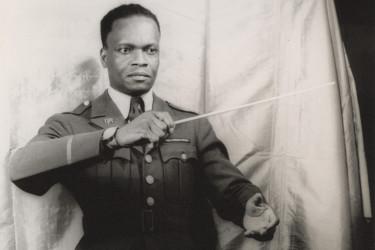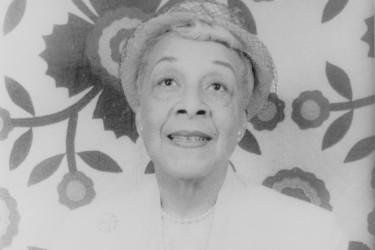About Open Ears: So many people who made invaluable contributions to classical music were underappreciated in their time, or have been nearly lost to history. That’s why KUSC is starting Open Ears, a series of stories about composers, musicians, and conductors who deserve more recognition. You can learn more and explore other articles here.
Jester Hairston was born in 1901 in Bellows Creek, North Carolina, near the plantation where his grandparents had been slaves. Not long after he was born, his family moved to the steel mill town of Homestead, Pennsylvania. Later on, Hairston said, “There’s nothing to do there but work in steel mills. That’s the reason I got out of there as quickly as I could.”
Hairston studied at the University of Massachusetts in Amherst, Tufts University, and Juilliard. After Julliard, he became the assistant director of the Hall Johnson Choir in New York and it was there that he developed his interest in African-American spirituals.
He trained choirs for radio and Broadway musicals. When he came to Hollywood in 1936, he sang and appeared with the Hall Johnson Choir in the movie The Green Pastures, the story of a preacher in a small church in Louisiana.
In 1943, Hairston formed his own choir and throughout the 40’s he arranged and conducted choral music for background use in films. When filmmakers stopped using large choral ensembles, Hairston worked as a character actor on radio and television and in movies.
This is one of his most popular arrangements:
One of Hairston’s original compositions is so authentic-sounding that it’s often mistaken for a traditional tune. He wrote it for the 1963 movie Lilies of the Field. In this scene, Sidney Poitier is teaching the song to a group of nuns. The voice is not Poitier; it was dubbed by Jester Hairston.







